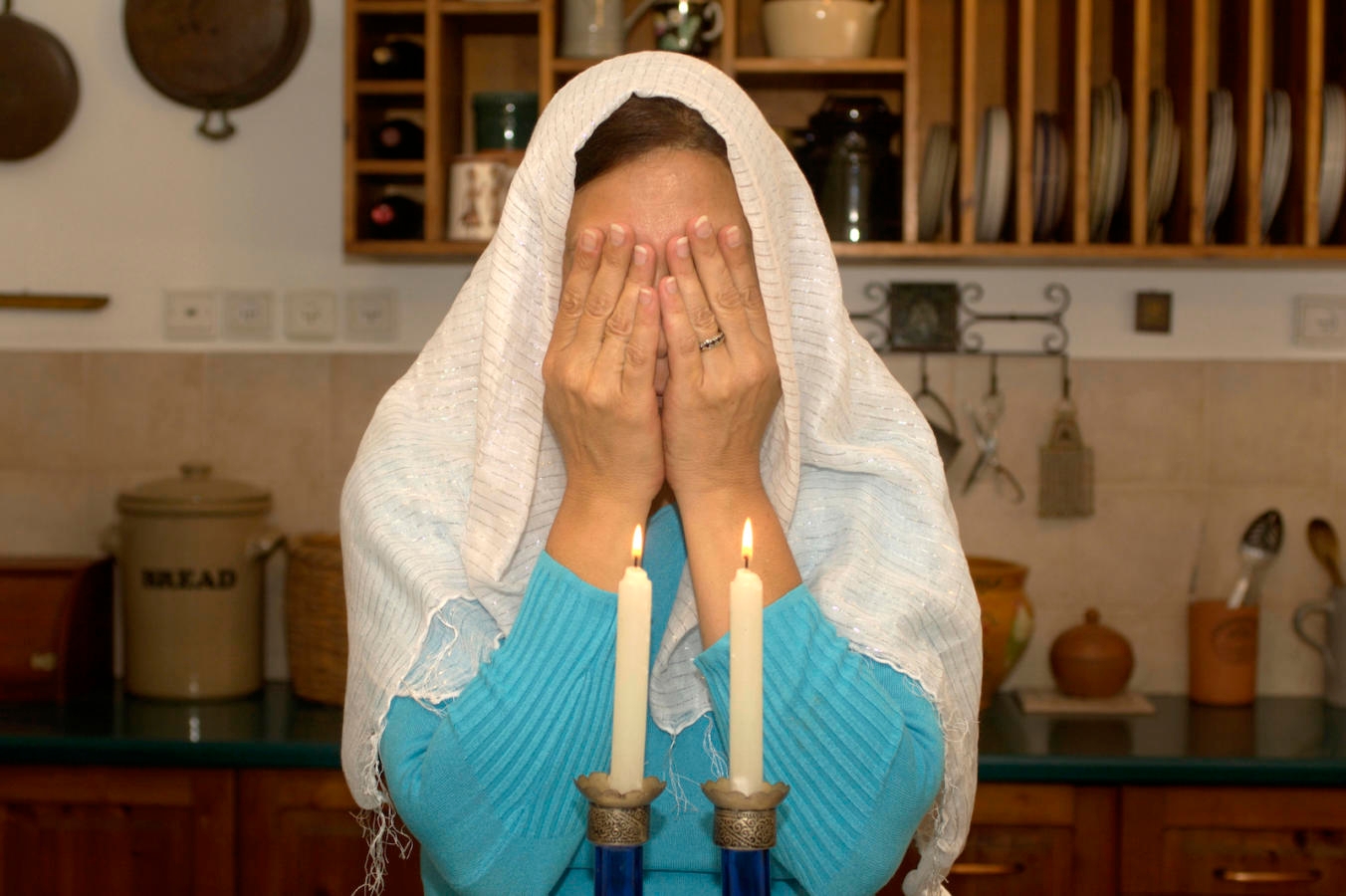For the deed to be effective, it must not remain that of an individual but must become that of a community. Even the purely religious aspects of the Jewish deed are most intimately interwoven with the general matrix of community existence. If, for instance, the Sabbath were a purely spiritual day, to be observed “in the heart” alone by meditation and inner peace, the economic structure of the society in which the Jew lived would have little or no effect on the observance. But since the Sabbath, like any other mitzvah, is a deed, requiring rest for the body as well as for the soul, the economic order is of the utmost relevance even for the purely religious significance of the day.
The most conducive habitat for the Sabbath is, therefore, a society whose economic and industrial activities are at a standstill on that day. The Sabbath is most naturally at home in such a society. The Sabbath deed, to be most effective, of necessity strives for the coordination of the material fabric and order of the community with its own intentions. This, however, may be most potently accomplished by a group that possesses sufficient sovereignty to be able to fashion the practical structures of its own life in accordance with its desires.
Dr. Eliezer Berkovits (1908-1992) was chairman of the Department of Philosophy at the Hebrew Theological College in Skokie, Illinois. Reprinted from God, Man and History: A Jewish Interpretation, published by Jonathan David.
Shabbat Observance Is Its Own Reward
My own definition of Sabbath observance would involve taking my watch off at sunset Friday and not looking at it until sunset on Saturday, a luxury I could never afford when I was a congregational rabbi. There is perhaps no more oppressive, though necessary, taskmaster in our lives than the clock, as we rush to catch a certain train, fearful of being late, fidget nervously in traffic jams, interrupt what we are doing and enjoying because a favorite television show is coming on or we have to meet a schedule. A day on which I didn’t know and didn’t care what time it was would be a day of liberation for me.
With your help, My Jewish Learning can provide endless opportunities for learning, connection and discovery.
When the Torah commands us not to light a fire on the Sabbath, one commentator goes beyond the literal meaning of those words and takes them to refer to fires of anger and jealousy. Don’t shout on the Sabbath, he advises us. Don’t argue or get into fights. Don’t raise your voice. That violates the Sabbath rest as much as actually starting a fire does.
I would like to think that Sabbath observance, like virtue, is its own reward, that it is worth doing not because it makes you a better worker, but because it makes you a better human being in those parts of your life that have nothing to do with work.
Harold Kushner, Rabbi Laureate of Temple Israel in Natick, Massachusetts, is a best-selling author and the editor of the D’rash section of the one-volume Torah commentary, Etz Hayim This passage is reprinted with permission from To Life!: A Celebration of Jewish Being and Thinking, published by Little, Brown & Company.
Shabbat is for Enjoying–not Exploiting–the World
The root of the word “Shabbat” means to “cease” or “desist.” To observe Shabbat means to cease our work life and break our daily routine every seventh day, making that day holy. Shabbat is to be a day of enjoying the world rather that doing battle with it; a day of relaxation rather than struggle, a time to live in harmony rather than to achieve domination.
Rabbi Arthur (Avraham Yitzhak) Green, Ph.D., is Lown Professor of Jewish Thought at Brandeis University and former president of the Reconstructionist Rabbinical College. Reprinted with permission from These are the Words: A Vocabulary of Jewish Spiritual Life, published by Jewish Lights.
We are Slaves to Work
Part of each Shabbat’s celebration is based on our admitting that we are still slaves to work, oppressed today by the fast pace of our work lives and the pressures of living in a highly achievement-oriented society. Our taskmasters today may be electronic rather than human, tempting us rather than whipping us to work just a little faster and harder. Our ability to leave them behind once a week is our proclamation of freedom, a true cause for celebration.
Rabbi Arthur Green. Reprinted with permission from These are the Words: A Vocabulary of Jewish Spiritual Life.
Rest from Unrest: Shabbat as Protest against Life’s Aimlessness
If the Sabbath is to have any significance it must confront one of modern man’s greatest curses, his internal and external unrest. This unrest arises from the fact that today he leads a life without goals and, as a consequence, that he is involved in competition without end.
Formerly, both the physical and spiritual goals of man were clear. He needed to survive physically and do everything and anything that would help him achieve this goal. He tried to survive in nature’s as well as in society’s jungle. He had to fight the devils of sickness and starvation and whatever else was his lot. If only he could survive he had achieved life’s major physical goal. Spiritually, the matter was even simpler. With Jew, Christian, and Mohammedan, living the good life or the life of faith was sure to bring some form of salvation: Paradise, Heaven, or Life in the presence of God. It was happiness postponed, but as a goal it remained quite clear.
In today’s Western society, purely physical survival is no longer the clearly defined goal (although for a good portion of mankind it still is, and therefore their Sabbath needs would be entirely different from ours). For us, to keep from starvation is no longer the problem. Rather, if I may so put it, the problem is that we longer know what the problem is. We no longer know what life’s physical goal might be or even if there is one altogether. Further, except for those who truly believe in salvation in the old sense, few men are sure what life’s spiritual goals are. So they talk of happiness or use similar empty phrases to cover their aimlessness.
I therefore view the Sabbath as potentially an enormous relief from, and a protest against, these basic causes of unrest. Once a week it provides us with an opportunity to address ourselves to the who-ness rather than the what-ness of life, to persons rather than things, to creation and our part in it, to society and its needs, to ourselves as individuals and yet as social beings. That is what Pieper called “the inner source of leisure,” the setting of goals which are both realistic and within one’s reach, yet also beyond one’s self.
I rarely find a better place for such redirection than a religious service, whose major function ought to be not just the repetition of well-worn formulae, but the celebration of human goals, setting them within the context of creation. If nothing happens to us during this or any Sabbath experience except an enlarging of our vision, we will have gained a new perspective of life’s meanings and will have diminished our sense of unrest. That will be Sabbath rest, in the sense required by our time.
Rabbi W. Gunther Plaut, Senior Scholar at Holy Blossom Temple in Toronto, is the author (with Bernard Bamberger) of The Torah: A Modern Commentary. Excerpted from “The Sabbath as Protest” in Tradition and Change in Jewish Experience, edited by A. Leland Jamison, published by Syracuse University Press (1978).
Excerpts from These Are the Words © 1999 by Arthur Green. Permission granted by Jewish Lights Publishing, P.O. Box 237, Woodstock, Vt. 05091.
Sign up for My Jewish Learning’s RECHARGE, a weekly email with a collection of Shabbat readings and more to enhance your day of rest experience.
Shabbat
Pronounced: shuh-BAHT or shah-BAHT, Origin: Hebrew, the Sabbath, from sundown Friday to sundown Saturday.
Torah
Pronunced: TORE-uh, Origin: Hebrew, the Five Books of Moses.



